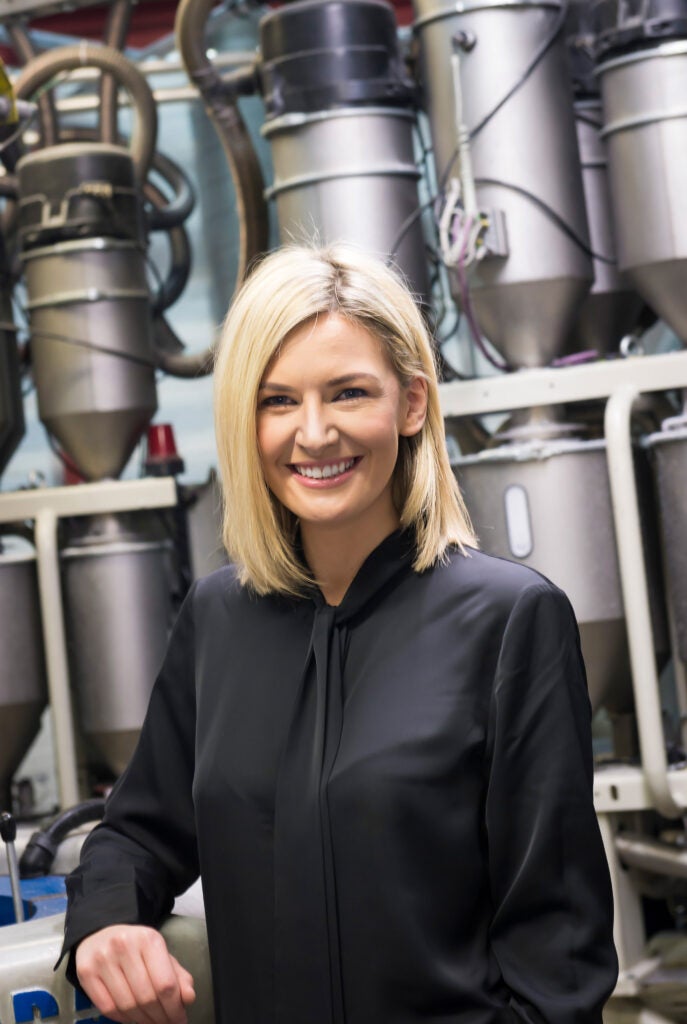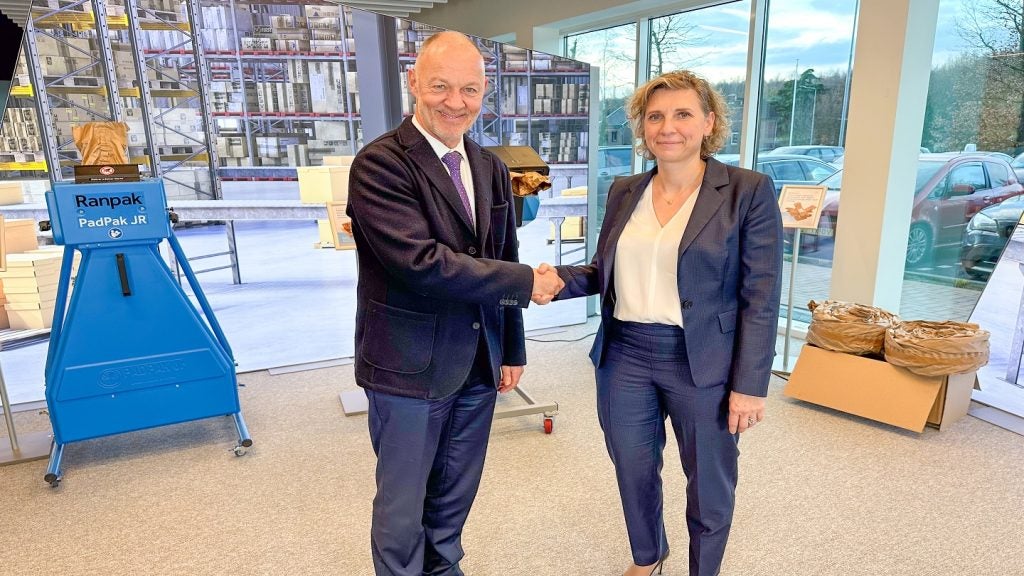Zoe Brimelow, brand director at packaging manufacturer and consultancy Duo explains how reCommerce is reshaping Gen Z’s attitudes towards packaging and sustainability.

Brand director at Duo, Zoe Brimelow
The pre-loved market is booming. According to Boston Consulting Group data, clothing, footwear and accessories resale markets were worth between $30bn to $40bn globally in 2020 and are expected to grow by 15% – 20% (CAGR) until 2025. The group also predicts that second-hand clothing will make up 27% of consumers’ wardrobes by 2023.
How well do you really know your competitors?
Access the most comprehensive Company Profiles on the market, powered by GlobalData. Save hours of research. Gain competitive edge.

Thank you!
Your download email will arrive shortly
Not ready to buy yet? Download a free sample
We are confident about the unique quality of our Company Profiles. However, we want you to make the most beneficial decision for your business, so we offer a free sample that you can download by submitting the below form
By GlobalDataThis fast-growing reCommerce trend-inspired Duo’s recent research* of over 1,000 UK-based Gen Z consumers aged between 16 and 26. The generation of people born from 1995 onwards is widely regarded as the driving force behind the popularity of pre-loved and we were keen to understand how their motivations for reusing and repurposing products is impacting their attitudes towards packaging.
Our research for a report titled ‘The reCommerce generation, how Gen Z will shape the future of packaging’ found clothing, accessories and footwear account for 60% of the items that Gen Zs are more inclined to buy in a pre-loved condition as opposed to new. It also highlights that one in five recent fashion purchases made online by Gen Zs was a pre-loved item and that 60% are more likely to buy from a retailer which sells pre-loved goods.
Gen Zs are financially motivated to buy and resell second-hand products. Around a third (31%) of Gen Zs identified the opportunity to save money by purchasing a pre-loved item as their main reason for doing so, while more than half (52%) are now reselling clothes online. However, there’s much more to this than financial value and this is where attitudes towards packaging are changing.
See Also:
Changing attitudes
The research also found that a quarter (25%) of Gen Zs are buying and selling used items to maximise the lifespan of products and to reduce the resources and carbon emissions required to make new ones. This notion of resourcefulness is reflected in Gen Z attitudes towards packaging, marking a shift in how they view sustainability in packaging.
Recycling and recyclability have long been interchangeable with ‘sustainability’ when considering the environmental performance of packaging. There’s no real surprise here. Recycling and recycled content are heavily championed on the pack; and are a cornerstone of many forward-thinking corporate strategies that are shaping new taxes and levies across the UK and Europe.
The benefits of recycling have long been mentioned in the same breath as sustainability and it’s become something of a benchmark for the eco-credentials of packaging. Findings from our research go some way to reinforcing this view. Data showed that when considering the green traits of a plastic mailing bag used for eCommerce orders, 68% of Gen Zs valued the importance of being about to recycle the packaging. More interestingly though, a higher percentage of Gen Zs (77%) felt the most important green trait of packaging is its ability to help a product arrive in perfect condition.
Gen Zs are increasingly taking a broader view of the purpose of packaging. There’s growing appreciation of its damage prevention benefits and how this can also save carbon emissions associated with creating and sending replacement products. This is creating a realisation that packaging can enhance sustainability beyond end-of-life options such as recycling.
Packaging sustainability is shifting from a recycling-dominated perspective to one that’s being heavily influenced by resourcefulness. When asked what changes they would make to packaging to suit the pre-loved market, the research found that the ability to reseal packaging and to easily change postal addresses ranked highly amongst Gen Zs. They also highlighted the importance of making packaging stronger and longer-lasting so that it can be used multiple times.
Although recycling and recyclability will continue to be important to Gen Zs, these factors will no longer be the defining characteristics of packaging sustainability. Changing consumption habits and an eagerness to be more resourceful are encouraging Gen Zs to think more about the lifecycle of packaging. This will create new opportunities for brands, retailers and manufacturers to better showcase the environmental performance of packaging throughout supply chains and challenge misperceptions around materials like plastic and raise awareness of the carbon-saving benefits of such materials.










Related Company Profiles
The Boston Consulting Group